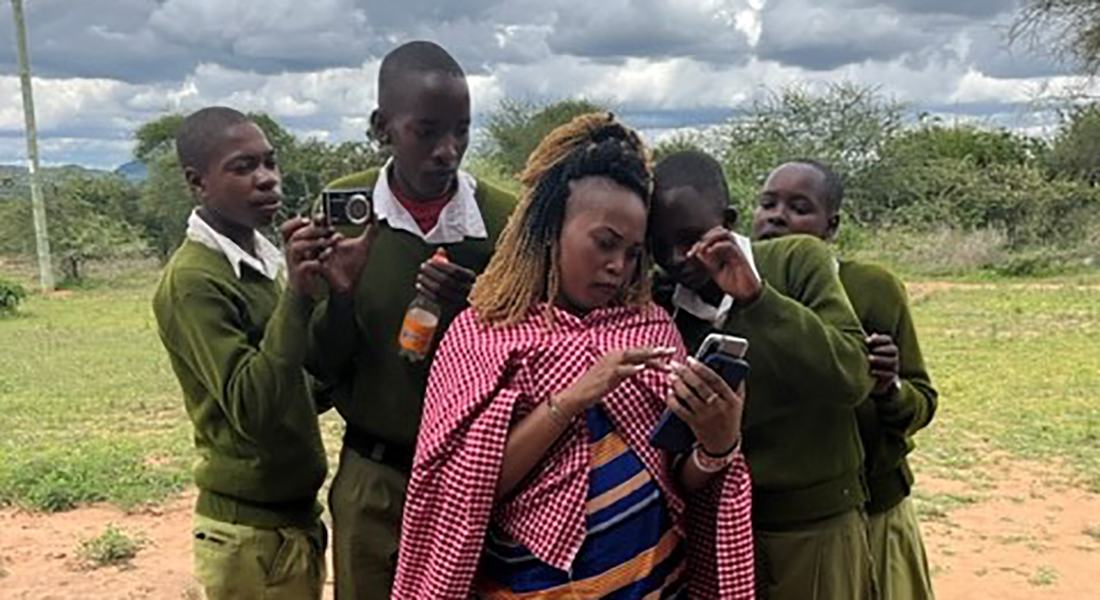Starting field work and trying out Photovoice with children and youth

The Y-ENGAGE team dedicated the two last weeks of March 2023 to enter the field-sites of the seven PhD-studies in Tanzania. The field-sites are many, diverse, and spread across the districts of Mtwara, Singida, Kiteto, Longido, and Rufiji. Climate change hits the sites differently because of variation in the environments, the infrastructures, the schools, the socio-cultural contexts, and the livelihood of inhabitants like pastoralism, agriculture, or trading. This field-site variety is important for the project to capture the multiplicity and complexity of what shapes youth’s experiences and engagement with climate change across Tanzania.
The PhD-students and their peer-researchers had worked hard to communicate the scope of their studies to relevant stakeholders and obtain the necessary official research permits. Now they were ready to enter their field-sites. The supervisors travelled to join their PhD-students’ field-site entry including meetings with community leaders, village leaders, and school leaders. Furthermore, the two project members that investigates the use of the Photovoice methods, and the project member that explores the ethical and mental health aspects of the study, did a full ‘road-trip’ to all of the PhD-students in their field sites as to support and document the initial steps of the fieldwork. The timing of the PhD-students’ field entry and the supportive visits benefitted all. The field entries uncovered crucial points about how climate change impact the particular setting and how children and young people might be able to engage with the project. Furthermore, the PhD-students and peer-researchers tried out the Photovoice methods with children and youth in school or community settings. They gave them cameras and asked them to take photos related to climate change, which they afterwards presented to one another and discussed. Important learnings emerged from these Photovoice-try-outs. Through mutual reflections about how the exercises went, the PhD-students, peer-researchers, and visiting project members made changes to the photography exercises and tried them out with the young participants. For instance, we found out that it worked better to ask participants to take pictures of ‘what they liked and disliked about their community’ and ‘what needed to change’ instead of giving them the task of taking photos of ‘climate change’. With such changes to the methods, the Y-ENGAGE team learned more about how to put into focus children and young people’s lived experiences of climate change awareness, agency, and action. The fieldwork was kicked off in a highly collaborative manner and we look forward to take the project to the next level.
